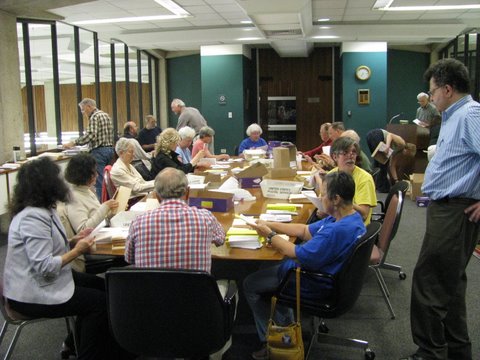On Tuesday September 13, 2011, Dr. Garrett Adams, current President of PNHP and founder of the Kentucky chapter of PNHP testified before the Senate. The occasion was a hearing entitled “Is Poverty a Death Sentence?” The hearing was sponsored by Senator Bernie Sanders (I-VT) for the United States Senate Committee on Health, Education, Labor, and Pensions Subcommittee on Primary Health and Aging.
Dr. Adams was asked to testify at this hearing because of his association with a free clinic in Beersheba Springs, Tennessee. (The clinic’s website can be found at beershebaclinic.org.)
PNHP President Dr. Garrett Adams testifying before Senator Bernie Sanders’s Senate hearing, “Is Poverty a Death Sentence?”
Dr. Adams’s testimony relates the realities of life and death for twelve patients from Kentucky and Tennessee that he has known, or of whom he has had first-hand knowledge. All of them have suffered or are suffering as a result of a lack of access to appropriate medical care. The testimony is unsettling, but enlightening.
Thank you to Senator Sanders for giving a voice to these unfortunate Americans who live in a country where health care is not a right for every resident, and it should be.


